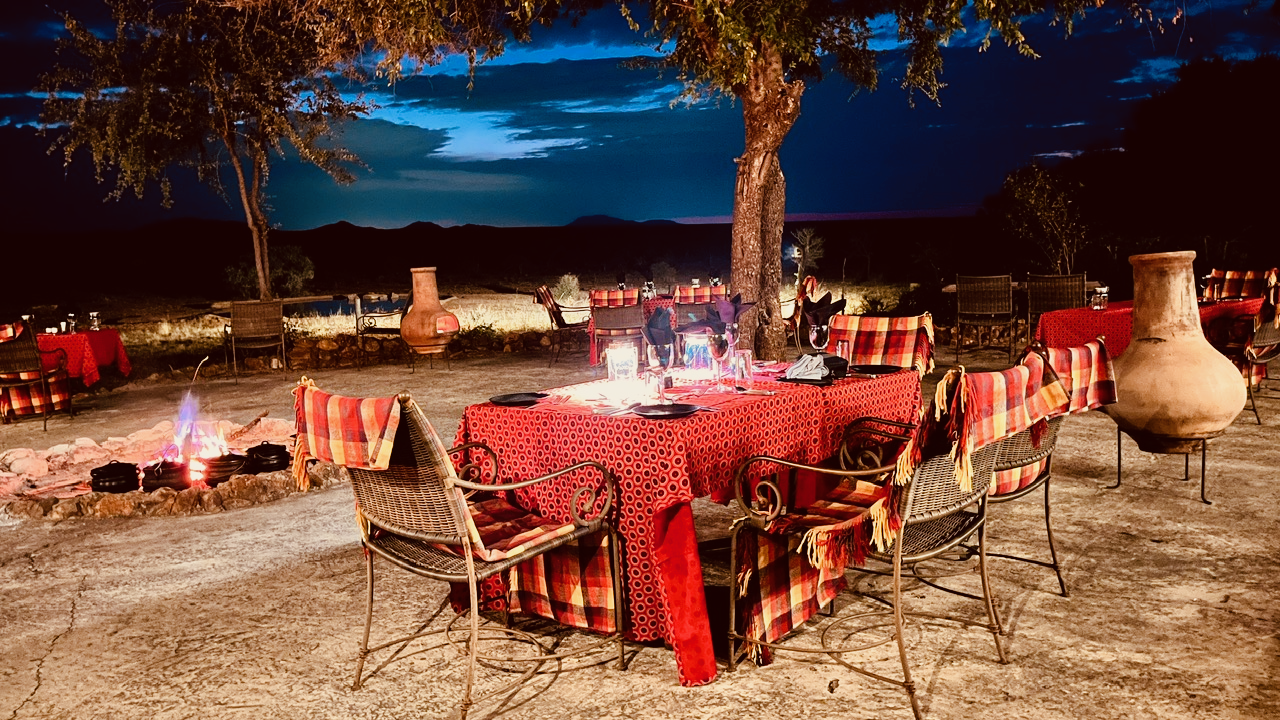The Big Smoke
The smell of the evening braai drifted across the deck at Etali Safari Lodge, mingling with the dusty scent of the Madikwe veld. Beyond the firepit, the waterhole shimmered in the last light, drawing impala, zebra, and a lone bull elephant that drank in slow, heavy pulls.
Mary’s phone buzzed against the arm of her chair. She stepped away from the others, answering in a low voice.
“Mary,” Richard’s voice came through, rough but steady. “We’ve got a problem.”
She turned toward the darkening horizon. “Talk to me.”
It’s Wolf,” he said. “He’s making big moves in shipping and logistics. More than acquisitions—he’s locking down entire supply chains. And Cape Town…” Richard hesitated. “Cape Town’s the drop point. Something’s coming in on his fleet. Not just cargo containers. Something bigger. And it’s moving inland fast.”
Mary’s fingers tightened around the phone. “How certain are you?”
“Certain enough that I need you in Stanford. We’ve got a window before the trail goes cold. Bring Ava and Cindy. Judd’s got his own lead in Johannesburg.”
When she rejoined the table, the firelight caught the crease between her brows. “Richard’s flagged Cape Town. Says Wolf’s using it as a waypoint for something off his container ships. He wants me, Ava, and Cindy in Stanford. Judd—your lead’s in Joburg.”
Judd nodded. “Then we split. Tomorrow.”
The next day, the Land Cruiser rolled out of Etali at first light, Doctor at the wheel for the last time. By mid-morning, they crossed into Gauteng and the glass-and-concrete sprawl of Johannesburg. The city rose like a mirage from the dry plateau—business towers, mine dumps, and the ceaseless hum of traffic.
At O.R. Tambo International Airport, they pulled to a stop at the departures drop-off. Judd hauled his go-bag from the trunk. “You three get to Cape Town. I’ll see the Johannesburg Order cell and see if we can put a name to Wolf’s ship.”
Mary squeezed his arm. “Stay sharp.”
“I always do,” he said, but there was a glint in his eye that meant he was already thinking three steps ahead.
He stepped back from the curb, watching as the women disappeared into the terminal crowd. Then he turned and crossed to the taxi rank, sliding into the back of a metered cab.
“Montecasino Hotel,” he told the driver.
The cab pulled away into the stream of traffic, heading north toward Fourways. The Montecasino complex rose like a slice of Tuscany transplanted to Johannesburg—faux-Italian facades, cobblestoned piazzas, and the cool, dim interiors of the casino floor. Judd didn’t come for the gaming. The hotel inside was discreet, comfortable, and—most importantly—favored by contacts who preferred shadows to sunlight.
Mary, Ava, and Cindy’s flight banked over the Cape Flats, giving them their first glimpse of Table Mountain wreathed in its tablecloth of cloud. The air was cool, salty, and edged with the smell of kelp when they stepped off the jet bridge.
They drove east along the coast, the mountains dropping steeply to their left, the Atlantic rolling in white and restless to their right. By early afternoon they reached Stanford, a quiet village surrounded by vineyards and wild fynbos.
The Inkwell compound sat hidden behind a Cape Dutch farmhouse. White gables gleamed against the green hills, concealing a warren of secure rooms, communications arrays, and a subterranean operations center dug deep into the bedrock.
Richard was waiting in the courtyard, tall, broad-shouldered, his weathered face splitting into a smile when he saw his sister. Years in the Middle East had tanned his skin and lined the corners of his eyes, but there was still a sharpness there—the reflexes of a man who’d never stopped scanning his surroundings.
Richard had served the Order for decades, most of it under deep cover in Muscat, Oman, operating in the shadows of the oil and gas industry. Officially, he was an infrastructure consultant, smoothing deals between Gulf states and Western energy companies. Unofficially, he was the Order’s financial bridge—the man who moved capital, laundered investments, and kept their operational pipelines funded in one of the most opaque regions in the world. His years in Oman had built him a network that stretched from Riyadh to Karachi, from the Horn of Africa to the Caspian Sea. If money moved through the Middle East, Richard knew whose hands it passed through.
Now, back in the Western Cape, his focus had shifted—but his instincts hadn’t dulled.
“Mary,” he said, embracing her. “Still keeping Judd alive, I see.”
“Some days,” she replied.
Inside, they descended into the compound’s war room. Maps of Southern Africa’s ports lined the walls alongside container yard schematics. A bank of monitors streamed live port feeds, satellite imagery, and customs data.
Richard gestured to a cluster of pinned manifests. “Wolf’s making targeted buys—private berths, cold storage depots, transshipment hubs. Most are owned through front companies in Singapore, Panama, and the Isle of Man. But here—” he tapped a point on the Cape Town docks “—this is his southern funnel. Something comes off here and disappears inland under bonded cover.”
Cindy frowned. “Disappears where?”
“That’s what we’re going to find out,” Richard said. “And we’ll need to move before it’s gone for good.”
Ava studied the map, tracing the inland routes. “If it’s as important as you say, he’s not moving it alone.”
Richard’s smile didn’t reach his eyes. “No. Which means we’ve only got one chance to pull it before it vanishes into his network.”
Outside, the sun dipped toward the ocean, throwing long shadows over the vineyards. Somewhere in Johannesburg, Judd was walking into Montecasino, ready to play his own hand in the game. But here, in the quiet hills of Stanford, the hunt for Wolf’s southern drop was just beginning.





















